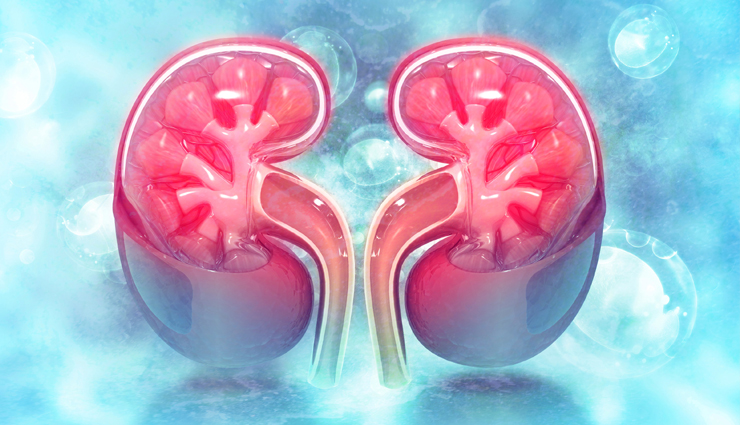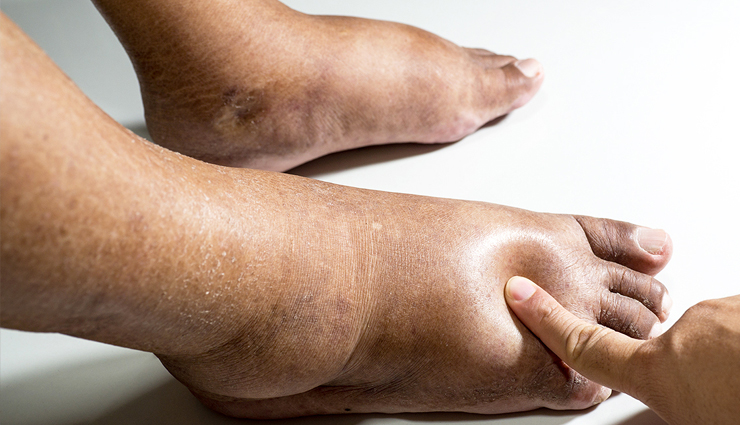- Home›
- Healthy Living›
- 9 Symptoms That May Be Sign Of Chronic Kidney Disease
9 Symptoms That May Be Sign Of Chronic Kidney Disease
By: Priyanka Maheshwari Mon, 08 Aug 2022 00:01:39

Chronic kidney disease (CKD) is a state of irreversible kidney damage or a decline in kidney function. In clinical practice, a confirmation of decreased kidney function for at least 3 months is required to make a diagnosis of CKD.
This can be done by a review of past measurements of glomerular filtration rate (GFR), presence of protein in the urine, and imaging abnormalities of the kidneys on CT or ultrasound. By and large, the symptom of kidney disease differs according to the specific clinical condition.
For example, Liddle syndrome is a rare genetic disorder that can manifest as early-onset hypertension and is caused by an abnormality of the function of a specific channel in the nephron that promotes salt retention.
Kidney disease may have different manifestations depending on the causative disease.
Many patients do not have symptoms and are incidentally noted to have elevated serum creatinine (Cr) on lab evaluation, which may have been stable for years.
The most common symptoms of CKD are as follows.

# Hematuria or blood in the urine
Gross hematuria, which is seen by the naked eye, can be due to urologic cause, for example, kidney stones, urine infection, or even cancer of the bladder or kidney.
Autoimmune diseases of the kidney, such as IgA nephropathy or thin basement membrane disease, can also cause episodes of gross hematuria. It may also be seen in acute kidney injury, uncontrolled hypertension, etc.
It is important to rule out menstrual contamination in menstruating or postpartum women.
Ingestion of certain drugs such as phenazopyridine or some foods such as beets can also cause red urine. Hence, it is important to rule out those causes.
Microscopic hematuria refers to blood detectable only on examination of the urine sediment by microscopy. This may only be seen on routine urine tests.
The presence of significant hematuria is defined by 3 or more red blood cells (RBCs) per high-power field in a spun urine sediment.
This finding can be benign in people who have no risk factors for urologic disease or other abnormal markers such as elevated creatinine or protein in the urine.
However, if significant hematuria persists for several years, the affected individual should be referred to a urologist.
Those with a history of urologic disorders, such as benign prostatic hyperplasia (BPH), should be referred to a urologist for cystoscopy.
Individuals with acute kidney injury or findings suggestive of glomerular bleeding should be referred to a nephrologist.

# Hypertension
Kidney disease invariably leads to the development of hypertension in people who do not have a prior history of the same.
In those with acute kidney injury from glomerular disorders, hypertension develops from retention of salt and water, leading to volume expansion.
These changes become more permanent with CKD. Hence, one of the first-line treatments is diuretic drugs, which focus on excreting salt and water through the kidney.

# Edema
Bilateral leg edema can affect people with CKD or acute kidney injury. Other non-renal causes of bilateral leg edema can be congestive heart failure or the use of antihypertensive medication such as amlodipine.
Leg edema that appears acutely can be caused by kidney disorders affecting the glomerulus, which is the main filtration unit of the nephron. These disorders consist of nephrotic syndrome and acute nephritic syndrome.
CKD can also lead to a subacute onset of edema in the legs, which may be mild, to begin with, and can progress as the disease progresses.

# Fatigue/nausea
Fatigue and nausea are, unfortunately, symptoms of advanced kidney disease, wherein the kidney is unable to excrete urea and creatinine effectively.
These indicate the presence of uremia or symptoms of advanced kidney disease due to the buildup of waste products.

# Foamy urine
A very important symptom to recognize, foamy urine can be caused by increased protein leak in the urine and is very suggestive of kidney disease.
Patients describe seeing foam in the urine with increased bubble formation after voiding in the toilet.

# Changes in urination
Decreased frequency of urination is seen in advanced stages of kidney disease.
Increased urination or polyuria can be seen in nephrogenic diabetes insipidus, which is a clinical condition caused by a decrease in urinary concentrating ability.
# Malnutrition
Malnutrition is common in people with advanced CKD because of lower food intake (principally due to anorexia), decreased intestinal absorption and digestion, and metabolic acidosis.
# Sexual dysfunction
People with advanced kidney disease can manifest significant sexual and reproductive issues.
These include erectile dysfunction, decreased libido, and disturbances in menstruation and fertility in women, usually leading to amenorrhea by the time they reach end-stage renal disease (ESRD).
Pregnancy in women with advanced CKD is high risk and uncommonly carried to term.





